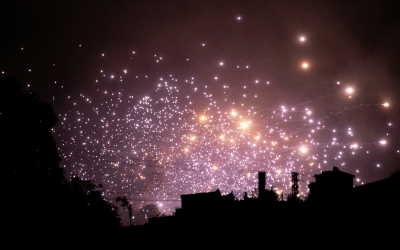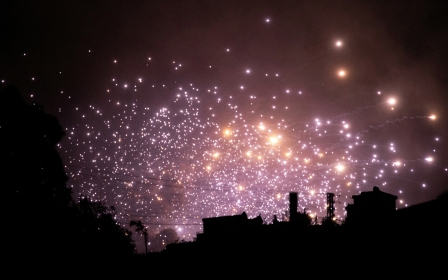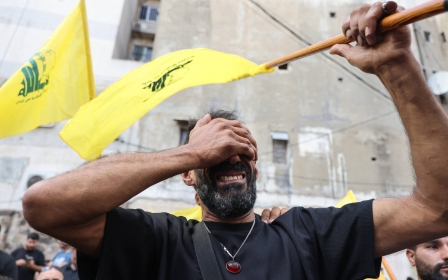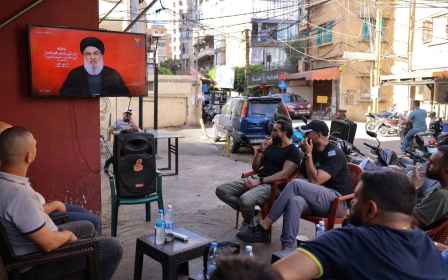Israeli minister calls to push Lebanon's 'Shia enemy population' away from border
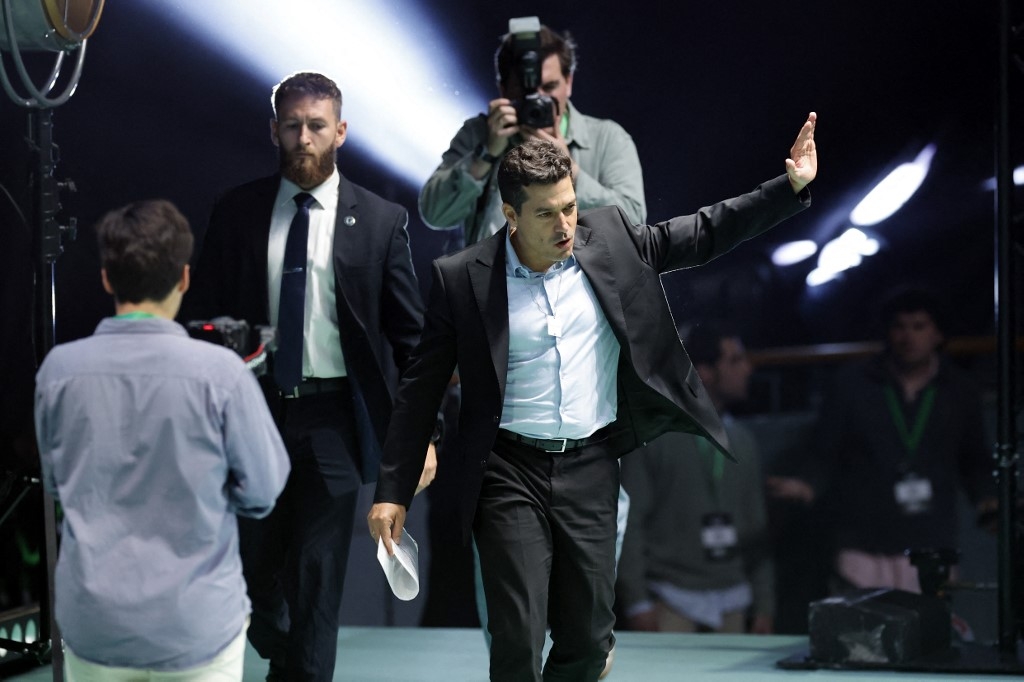
An Israeli minister has called for the "Shia enemy population" of Lebanon to be kept away from the border of Israel, as his country's military steps up its attacks on its northern neighbour.
Writing on X, Minister of Diaspora Affairs Amichai Chikli said over the weekend that a buffer zone should be created in southern Lebanon.
He said that "even though it has a flag and even though it has political institutions", Lebanon "does not meet the definition of a country".
He also posted images of maps questioning the current borders of Syria and Lebanon, referencing the Sykes-Picot agreement of 1916 that carved up the Levent into British and French spheres of influence.
"A renewed buffer zone, free of enemy population is the order of the hour and it is the right and most just thing to do both from a security point of view, both from a political and moral point of view," he added.
New MEE newsletter: Jerusalem Dispatch
Sign up to get the latest insights and analysis on Israel-Palestine, alongside Turkey Unpacked and other MEE newsletters
Chikli has courted controversy before, including through his heavily publicised relationship with European far-right leaders, including Marine Le Pen.
Over the past three days, Israel has been heavily bombing southern and eastern Lebanon. On Monday alone, at least 100 Lebanese were killed by Israeli attacks.
לבנון, למרות שיש לה דגל ולמרות שיש לה מוסדות פוליטיים לא עונה להגדרה מדינה.
— עמיחי שיקלי - Amichai Chikli (@AmichaiChikli) September 21, 2024
בהיעדר מונופול על הפעלת הכוח הן כלפי פנים והן כלפי חוץ ממשלת לבנון היא לא יישות ריבונית. על מרחב הגבול עם לבנון המאוכלס ברובו באוכלוסייה שיעית עויינת שולט באפקטיביות ארגון חזבאללה שבשמונה לאוקטובר פתח… pic.twitter.com/pVrszT5tFf
Meanwhile, Hezbollah said it had targeted Israel's Ramat David military airbase and the Rafael arms manufacturer near Haifa in rocket attacks.
This ongoing conflict between Israel and Hezbollah, a movement born out of resistance to Israel's 1982-2000 occupation of south Lebanon, began the day after the 7 October Hamas-led attack on southern Israel.
Hezbollah has said it does not seek a large-scale war with Israel and will stop its rocket and artillery strikes, which it says are conducted in solidarity with the people under fire in Gaza, once a ceasefire is agreed upon between Hamas and the Israeli government.
The fighting has killed hundreds of Lebanese and dozens of Israelis.
Israeli ministers have become increasingly vocal in their calls to take direct military action against Lebanon.
Speaking on Israeli TV last week, the country's education minister called for Lebanon to be destroyed in its entirety.
"There is no difference between Hezbollah and Lebanon. Lebanon will be annihilated. It will cease to exist," said Yoav Kisch.
Tens of thousands on both sides of the border have been displaced. In Gaza, Israeli forces have killed more than 41,000 Palestinians.
Several countries, including Russia, Jordan and Egypt, have all said that Israel's attacks in Lebanon in recent days are an attempt to drag the Middle East into a broader regional war.
Middle East Eye delivers independent and unrivalled coverage and analysis of the Middle East, North Africa and beyond. To learn more about republishing this content and the associated fees, please fill out this form. More about MEE can be found here.


